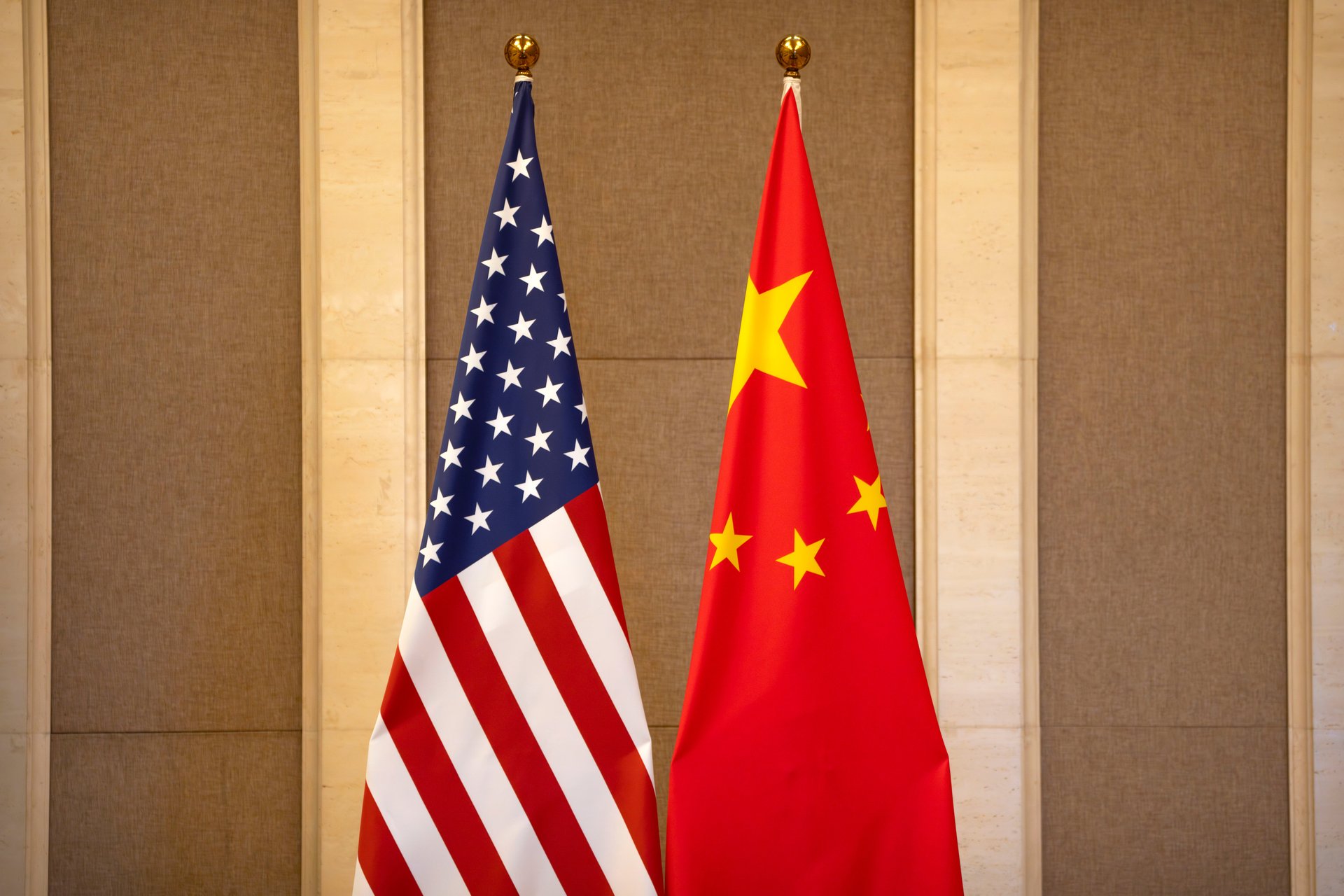🌏 The next trade war
Plus: Fashionably late to AI?

Good morning, Quartz readers!
Suggested Reading
Here’s what you need to know
Cache them in the Gulf. Top U.S. tech companies — Nvidia, OpenAI, Oracle, Cisco, and more — are collaborating on a major AI data center project in the United Arab Emirates.
Related Content
Jony’s on the spot. OpenAI CEO Sam Altman, alongside famed ex-Apple designer Jony Ive, wants to start shipping out 100 million AI “companions” by the end of 2026.
Tesla’s bad year continues. Chinese EV-maker BYD just hit a milestone, surpassing Tesla in Europe with a 169% sales surge, according to a report.
From pistons to peaches. Mercedes-Benz is pulling 400 jobs out of Michigan and “doubling down” on Georgia, which is becoming a key U.S. automotive hub.
Clean-up on cubicle five. Walmart is cutting about 1,500 corporate jobs in what its CEO called “opportunities to remove layers and complexity” in a staff memo.
Cigna will weight and see. The insurer announced a deal to cap its copay costs on popular weight-loss drugs at $200 a month through employer health care programs.
One in a million… dollars. U.S. drug prices just doubled, as the pharmaceutical industry shifts toward treating rare diseases and searching for the next Ozempic.
The biggest story in global finance? U.S. treasury yields are rising, and markets are bracing for higher mortgage rates — all amid the GOP’s “big, beautiful” tax bill.
Equities meet the blockchain era. In a potential democratization of assets, Kraken will offer tokenized securities of big-name companies to customers outside the U.S.
The Silicon Curtain
The U.S. and China may have agreed to step away from the tariff cliff (for now), but the détente only goes so deep. Behind the diplomatic smiles, the superpowers are squaring off in a far more consequential contest: the battle for digital dominance.
This trade war’s front is semiconductors, AI infrastructure, and data sovereignty — the raw materials and frameworks of 21st-century power. The U.S. is tightening controls on AI chips and cloud services to box China out. China is countering not with tit-for-tat tariffs but with export bans on critical minerals, open-source AI workarounds, and a furious push for tech self-sufficiency.
At the center of the tech cold war are mirrored titans: Nvidia, the crown jewel of the U.S. AI economy, and Huawei, the symbol of China’s digital ambitions. The rivalry extends beyond chips to the data and models that train them. In one corner, the U.S.’s OpenAI hoards cutting-edge models behind APIs and licensing. In the other, China’s DeepSeek throws open the gates with open-source releases that undercut U.S. controls — and spook Wall Street.
This next frontier in the trade war is about who gets to write the rules of the digital future.
The U.S. and China aren’t just decoupling. They’re racing to build competing visions of that future — one chip, one model, one data center at a time. Quartz’s Shannon Carroll has more on what’s chipping away at U.S.-China ties.
Ive been thinking…
Silicon Valley has long promised a future we’d wear — and has, for the most part, delivered expensive, awkward flops. From Google Glasses to Humane’s AI Pin, the graveyard of wearable tech is littered with good intentions… and bad interfaces.
Now, however, Jony Ive, the design guru behind Apple’s most iconic gadgets (including the Apple Watch and AirPods — two of the only real wearable hits), is teaming up with OpenAI. Sam Altman’s AI juggernaut just acquired Ive’s hardware firm, io, for $6.5 billion, setting the stage for what the duo is hoping will be a huge moment for potential AI wearables.
Ive’s verdict on recent AI gadgets? “Very poor products.” His mission? Make something people might actually want to wear.
Meta’s Ray-Ban smart glasses are selling well, and Google has admitted that its first wearable push was too early. If Ive’s minimalist philosophy and OpenAI’s generative brains can finally sync, the industry might be looking at something new: a wearable that wears well. Quartz’s Jackie Snow has more on how AI wearables might be ready for their glow-up.